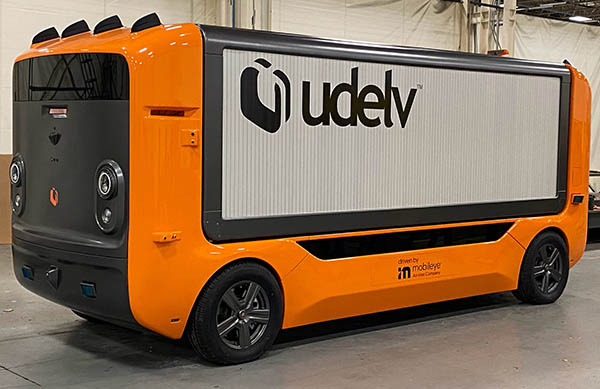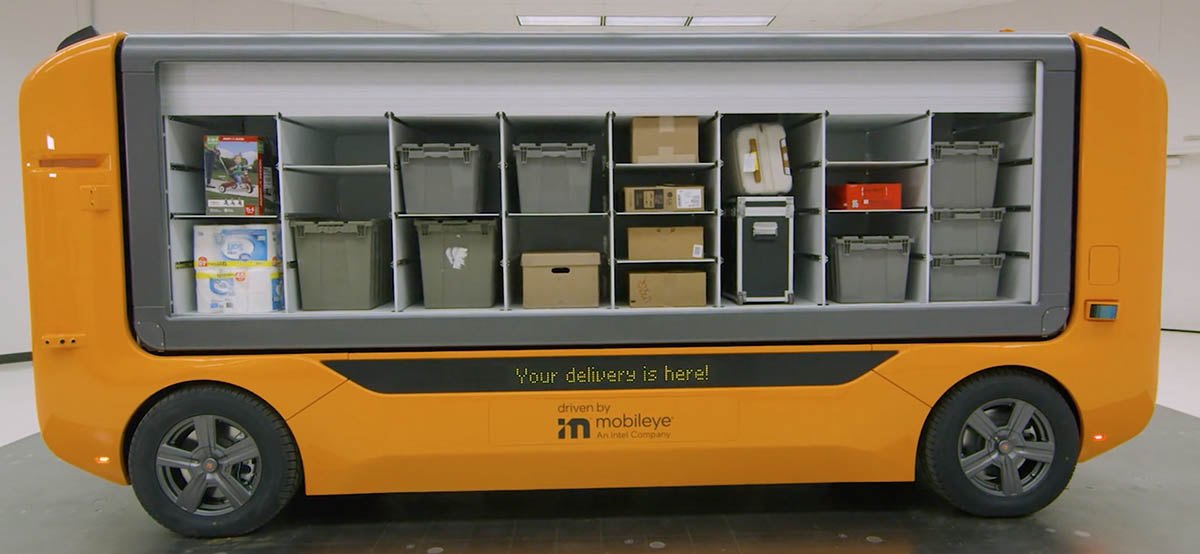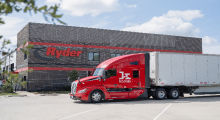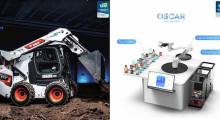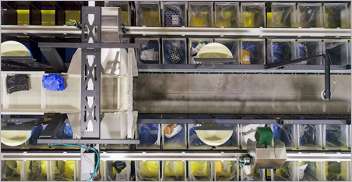Although some exhibitors have moved online, announcements around autonomous vehicles, robots, and drones are still coming around the international Consumer Electronics Show, or CES 2022. Udelv today unveiled the Transporter, its cab-less, self-driving, electric vehicle for multi-stop deliveries. The system is driven by Mobileye's technology.
“This is a historic day for the transportation and logistics industries,” said Daniel Laury, co-founder and CEO of Udelv. “The Transporter is transformative for two of the world's largest industries: automotive and logistics. It was created to solve two great challenges of commercial fleets: the shortage of drivers and the electrification of fleets.”
Laury and Akshat Patel, now chief technology officer, founded Udelv in 2017. The Burlingame, Calif.-based startup claimed that it made the first-ever autonomous delivery on public roads in 2018. Since then, it has completed more than 20,000 deliveries for multiple merchants in California, Arizona, and Texas with two vehicle generations prior to the Transporter.
Udelv said its autonomous vehicles, paired with its uPod delivery technology, enable long-range, high-capacity deliveries that are safe, business- and customer-friendly, and meet sustainability goals.
Mobileye Drives Transporter
Udelv said its third-generation vehicle is the result of years of experimentation and client testing, as well as mechanical, electrical, and software engineering.
The Transporter uses the Mobileye Drive self-driving system with a robust suite of cameras, lidar sensors, radars, and the fifth generation of EyeQ, the Intel unit's system-on-chip (SoC) for automotive applications.
To rapidly deploy at scale, the Transporter will integrate Mobileye's maps based on Road Experience Management (REM), a crowdsourced, continuously updated map of the world that digitizes what autonomous vehicles need to navigate.
The vehicle also features Udelv's 24/7 proprietary ultra-low latency camera-based teleoperation system for remote maneuvers and assistance. It uses the comapny's proprietary uECU (Electronic Control Unit), which acts as the vehicle's central compute unit to integrate and optimize all functions.
Battery capacity is between 90 and 160 kWh with a 160 to 300 mi. (257.4 to 482.8 km) range, said Laury. DC fast charging will take 45 minutes to add up to 220 miles of range. The Transporter's top speed is 70 mph (112.6 kph).
The fleet of Transporters is operated by Udelv's proprietary Fleet Intelligence and Management System with route optimization and fleet planning algorithms. The system is designed to maximize delivery efficiency and customer satisfaction while minimizing the total cost of operation, Laury said.
Udelv makes deliveries with modular uPod
The Transporter includes a patented, self-contained cargo pod called the uPod, said Udelv. The company said it can make up to 80 stops per cycle at highway speeds and be operated by Udelv's mobile apps to seamlessly schedule, deliver, track, and retrieve packages.
Laury highlighted the following features:
- The uPod is a secure, automated, hot-swappable, and modular cargo space specifically designed for autonomous delivery, with adaptive shelving and an IRIS aperture mechanism.
- It can carry up to 2,000 lbs. (907.1 kg) of cargo and make up to 80 stops per run.
- The uPod is connected to proprietary cloud-based software with intelligent loading and unloading, as well as a function to return items.
- It can deliver items ranging from convenience goods, e-commerce packages, and groceries to auto parts, electronics, and medical supplies for business-to-business (B2B) and business-to-consumer (B2C) applications.
Reservations and pilots as Transporter rolls out
Udelv said it already has more than 1,000 reservations, including from U.S.-based Donlen and Europe-based Planzer and Ziegler Group. The U.S. Air Force also awarded the company a contract for a pilot program at Edwards Air Force Base in California.
“The Transporters will dramatically improve the efficiency and safety of last- and middle-mile delivery services and make deliveries affordable for everyone and everything from electronics and auto parts to groceries and medical supplies,” added Laury.
Udelv aims at having 50,000 units of the Transporter on public roads by 2028, with the first units being commercially deployed in 2023.
Article topics
Email Sign Up

